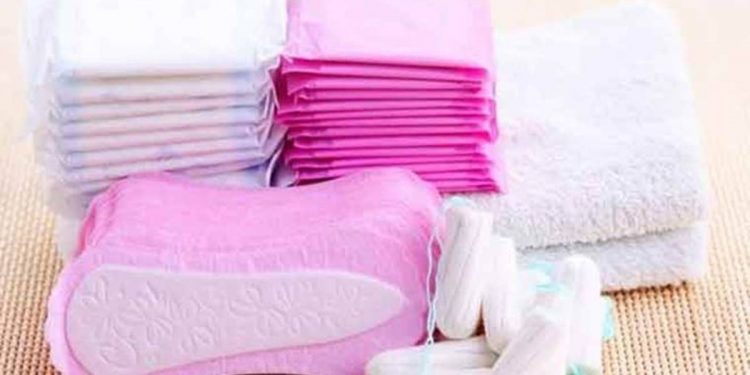Many women are wary of the health implications of reusing menstrual pads. But like other sanitary products, any health concerns raised are usually as a result of poor hygiene.
Since 2013, Menstrual Hygiene Day has been celebrated on May 28, by non-profit organisations, government agencies, individuals, and the private sector to promote good menstrual health and hygiene for all women and girls.
Menstrual hygiene day sets out to raise awareness and tackle negative social norms and knowledge about menstrual hygiene.
As prices of regular menstrual products continue to hike, having a period in Nigeria means many girls and women from low-income households have to halt their daily activities and use alternative means to manage their monthly cycle.
In April, Peoples Gazette had covered menstrual cups as an alternative sanitary product, however, in honour of #MHDay2021, the Gazette explores reusable pads as an alternative to other products.
Victor Adewale-Niyi, the Programmes Coordinator of TeamCOBY, spoke to the Gazette about this alternative sanitary product. In its outreach, TeamCOBY educates girls and women in rural communities on menstrual hygiene and health.
The pads are made from pure cotton fabric and thick fibre materials to aid absorption. The pads usually have buttons or velcro straps to allow them remain in place inside clothing and the pads can be washed after every menstrual cycle and stored ahead of the next cycle.
The major concerns often raised when using this product include the price implications; like menstrual cups, the initial purchase price may seem expensive, but long term use allows the woman to save as it costs a fraction of what is spent monthly on regular menstrual products. A search on Jumia puts the price range between N4000 – N15,000. These pads may last up to five years, depending on use and after care.
Another concern, especially when it relates to women living in rural communities with difficulty accessing water, is that the pads have to be thoroughly washed to ensure all collected blood is removed, unlike disposable pads where one simply discards it, and menstrual cups where the cup is emptied and washed under running water. Reusable pads have to be either soaked for a couple of minutes in cool water before being washed and rinsed.
Mr Adewale-Niyi addresses the question of women in rural communities facing challenges regarding access to water. He said; “If the women have access to water to drink, and cook, then they’ll be able to take care of the pads. There’s no special volume of water required to wash the pads.”
Another concern is the ease of use. Considering how pads have to be changed every four to five hours depending on the woman’s menstrual flow, reusable pads may be a cause of concern for a woman on the move.
The Gazette spoke with Jeanette (23), who makes use of this sanitary product.
“I’ve been using these pads for about two years now and because I travel a lot for work, I usually carry ziploc bags in my handbag. I can’t remember the last time I had to buy Always or any pad. When I have to change, I put the used pads in the ziploc and move. I soak all the pads I’ve used once I get home and wash them by hand.”
Many women are wary of the health implications of reusing menstrual pads. But like other sanitary products, any health concerns raised are usually as a result of poor hygiene.
Mr Adewale-Niyi explained that in demonstrating how to use these products to girls and women during TeamCOBY’s programmes, personal hygiene is paramount to handling and use of the pads. He placed emphasis on sun drying the pads after each wash to kill any bacteria, and proper storage of the pads between cycles.
Making the switch from easier, single use sanitary products to alternatives such as reusable pads or menstrual cups comes down to the preference of the woman.
Jeanette notes that she is; “comfortable using these. I’ve not had an infection since I started and I don’t complain about the current prices of pads and tampons. I’ve saved so much money since I started using the reusable pads.”
The #MHDay movement started in 2013 by a German nonprofit called WASH United, with the goal to end period stigma. It aims to, by 2030, create a world where everyone can access and afford the menstrual product of their choice and can access period-friendly water, sanitation & hygiene facilities globally.






